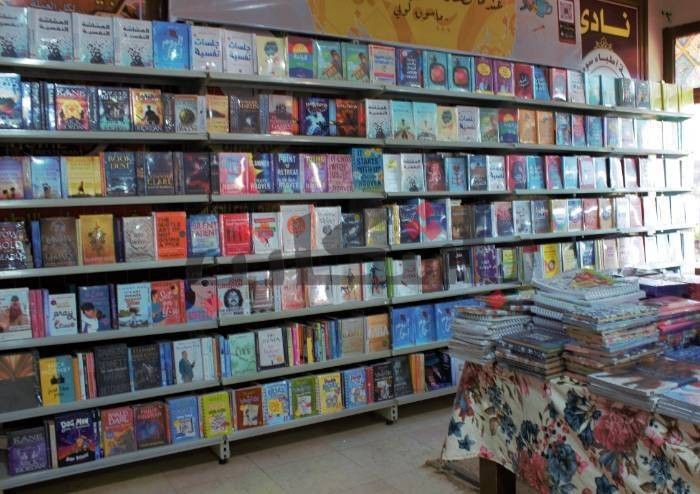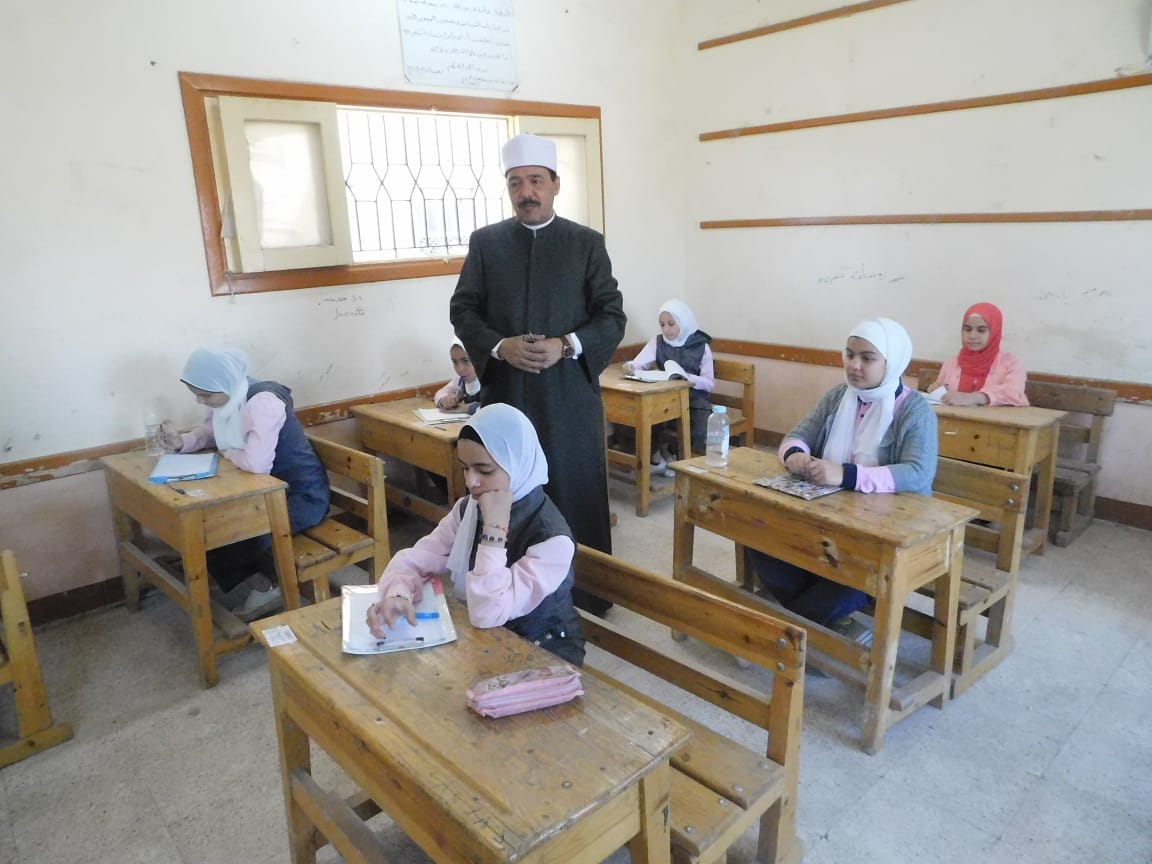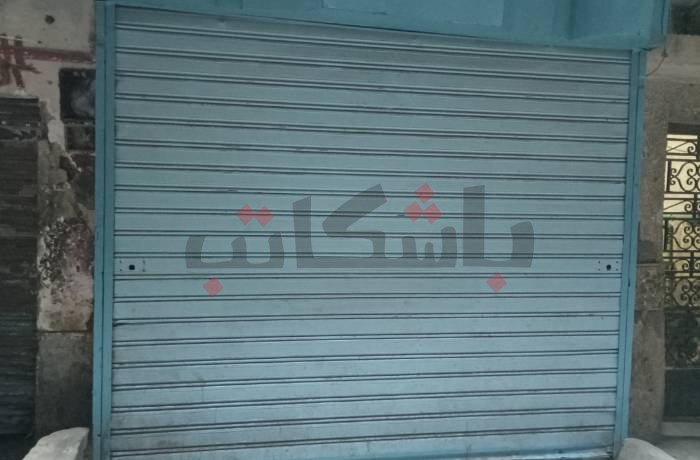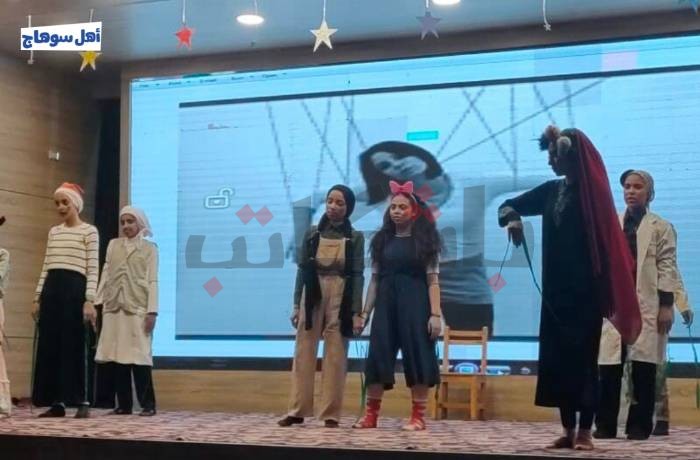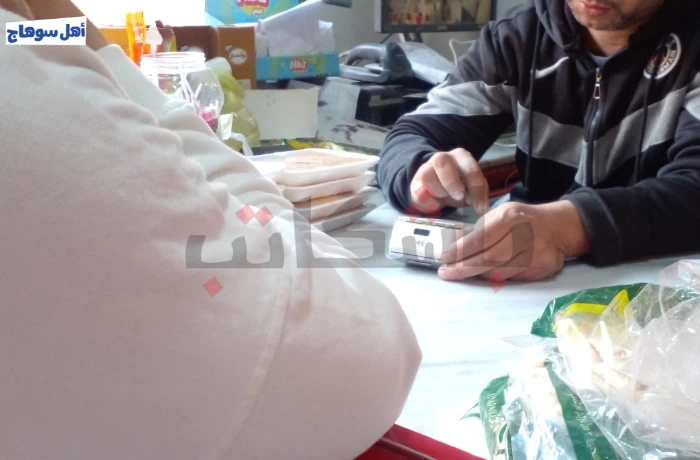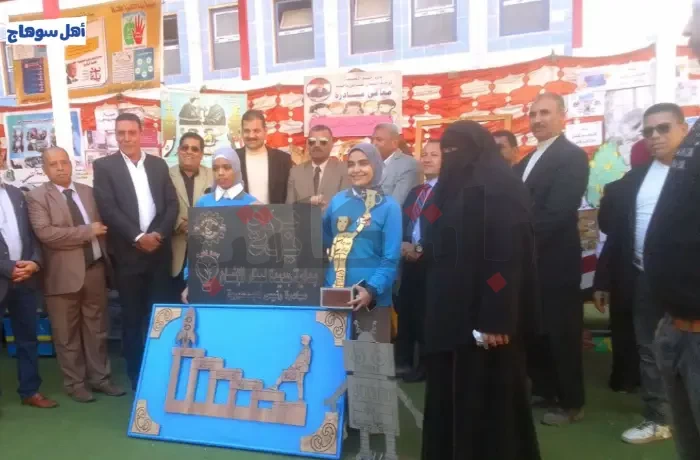Manar Hasan, a student at the Faculty of Pharmacy, prefers reading printed books at home only, but outside she only reads e-books; “the only fault in e-books is that the font is really small, and the phone screen causes eye dryness”.
She tries every now and then to squeeze the cost of a printed book into her budget, however, this became an increasing financial burden to her recently with the continuing increase in book prices as reflection to the increase in papers and printing prices.
Manar tried to overcome this challenge by reading her favourite books electronically, nonetheless this includes some issues; first, not all books have e-copies, or as Manar put it, she fears violating intellectual property rights, “I’m worried that downloading e-books from websites that didn’t get the author’s permission is religiously forbidden”.
Manar is not the only one raising the issue of shifting between printed and e-books in Sohag, this has become the dilemma of nearly every book lover, for it is not a luxury anymore to buy books with the continuous increasing prices.
E-books are cheaper than printed ones, which their prices increase as a consequence of the high cost of papers, printing, and raw materials. With the decrease of the Egyptian Pound value in the face of US dollars, printed books cost increased by 3 or 4 times, the thing that Manar is suffering from.
Just like many college students, Manar believes that printed books’ prices affect the demand of young people on books; they don’t have fixed income enabling them to buy these books.
In order to face such crisis, Manar suggested normalising the idea of reading in public libraries spread in each city and governorate; so that book lovers would read what they want, in addition to facilitating borrowing books for a symbolic sum that the borrower gets back after returning the book in good condition, or they would be fined for whatever damage caused.
However, in Sohag, there is only one public library, which is Rifa'a Al-Tahtawi, and it doesn’t include all book genres, as for the Sohag Culture Palace library, it is closed for development works in the palace.
Manar calls for spreading the idea of reading e-books via “Adobe” application which enables readers to write notes on the pages.
She finished reading all the printed books in her house, and finally had to resort to e-books; printed books are expensive, so logically she would resort to cheaper solutions, and that means changing her reading habits which she started when she was only three years old. When she was in school, Manar switched books with her friends and saved her pocket money to buy more.
Manar got used to reading e-books; which increased her longing for printed ones, “the smell of books is distinctive, and I’ll never stop buying them despite their high prices”.
Books prices have skyrocketed in Egypt, following the floatation of the Egyptian pound at the end of last October, leading to the increase in raw material prices.
Merna, also a student in the Faculty of Pharmacy, doesn’t feel comfortable with reading e-books also; they strain her eyes, unlike the printed books which make her happy by only touching their papers, they also encourage her to read the book more than once, unlike e-books.
Merna suggested that publishing houses make a deal with paper factories to reduce their prices to face the crisis of the high price of printed books, she also recommends resorting to audiobooks available on mobile applications, which help in listening to more than one book and reduce the purchase rates of printed books.
Just like Merna and Manar, Kholoud Salah, a student at the Faculty of Physical Therapy, suffers from a difficulty in reading e-books and the expensive prices of printed ones.
Kholoud doesn’t want to read e-books as they strain her eyes and make her lose the pleasure of reading, leading to decreasing her reading rates, also the phone has many applications that would distract her from reading.
Kholoud finds herself in the face of expensive printed books, and being a financially dependent student, she cannot exhaust her family’s budget by adding to it the cost of expensive books, pointing out that some readers have families that are not interested in reading, and hence they won’t appreciate the idea of buying books no matter the price.
She realises that her depending on e-books won’t last for long, Kholoud can’t wait to be financially independent from her family so she can buy printed books again, clarifying that e-books are widely available on the internet for some authors agreed on uploading their books cost free, especially books from the eighties and nineties, and old English novels.
Kholoud doesn’t get her e-books supply from paid applications, for she spends her days sometimes without reading.
She believes that the high cost of printing materials is not a sufficient reason to explain the high prices of printed books, whereas the real reason is the book’s contents, as writers add to the price the cost of their efforts and what they present to the readers.
The Central Agency for Public Mobilisation and Statistics shows that the number of books printed per year reached 2,256 books, and the number of copies per thousand copies reached 34,157 books, according to the statistical yearbook.
“Patterns of how faculty members and their assistants in the faculties of social and human sciences at Damietta University benefit from e-books”, this study issued in 2021 at Damietta University indicates that 95% of researchers use e-books as per 220 people who answered a questionnaire regarding this, and that 98% of them read those books at home.
The study clarifies that the age group from 21 to 41 is the group using e-books more, and that 69% of researchers depending on e-books explained this that they do not have to go to the library, whereas 36% of them considered reading from computer screens as one of the most obstacles e-book readers face.
